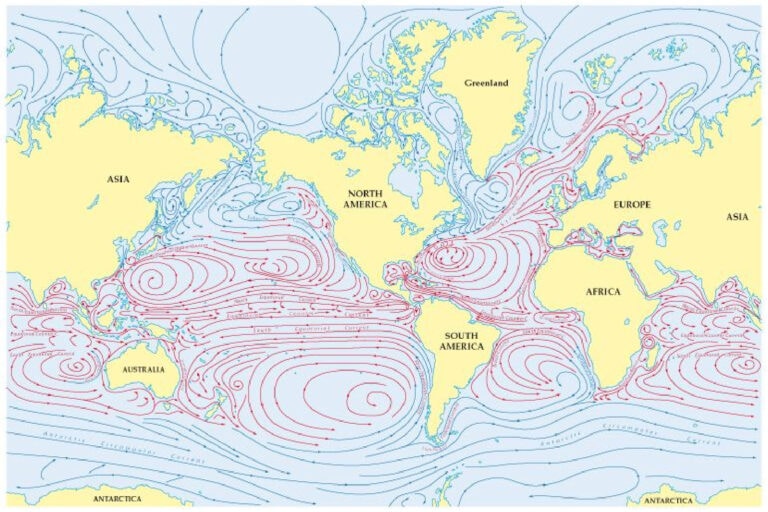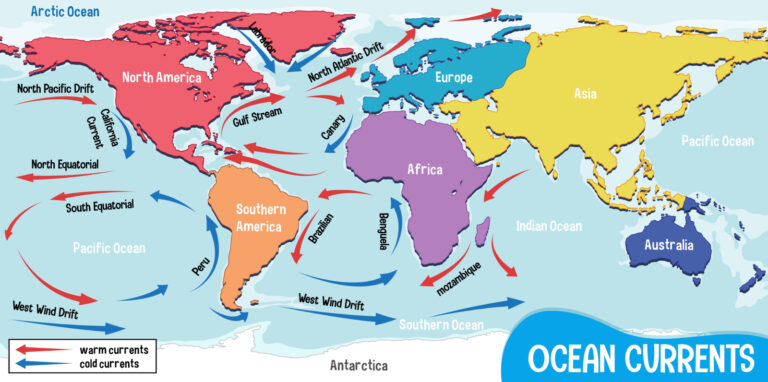Europe is in danger of significant cooling, climate scientists warn after news broke last week that one of Earth’s major ocean currents is on the way to collapse due to the effects of global warming.
These concerns have come to light following a recent study, helmed by researcher René M. van Westen, which claims that the Atlantic meridional overturning circulation (AMOC), one of Earth’s major ocean currents, is on route to cease flowing.
The AMOC plays a major role in global temperature exchange, transporting warm water from the tropics toward the North Atlantic region, including areas around Europe, Greenland and northeastern North America.
This redistribution of heat is critical to regulating temperatures in these higher latitudes, influencing regional climates and weather patterns.
As such, the AMOC collapsing would likely lead to a notable cooling of the northern hemisphere, specifically in Europe, and a potential rise in sea levels along eastern United States coasts.
Increased uncertainty
According to Ori Adam, a professor at the Hebrew University Climate Science Center and self-proclaimed global warming optimist, this would be notable but nowhere near catastrophic — especially considering that it may effectively negate some of the current effects of global warming.

“Let’s put this in context. Let’s say this happens by the end of the century: this would mean a very significant and rapid cooling of the northern hemisphere. So despite global warming being the potential trigger for this, the response would be a significant cooling of Europe, which is opposed to the warming trends that we’re seeing right now,” he elaborates.
“Under this scenario, the southern hemisphere would get warmer, because now you’re not taking all of that heat from it,” he admits. “But since most of the continents are in the northern hemisphere, and that’s where people live, it would be less felt.”
Adam says this one research study needs to be reproduced by other models so that “it could be better understood and maybe better constrained and so forth. Really it just increases the uncertainty of what might happen by the end of the century.”
That isn’t to say the total impact would be negligible.

According to Tel Aviv University’s Professor Colin Price, “It may have a small effect on global temperatures, but it may have a dramatic impact on the economy of specific countries close to the Atlantic.”
Price says Europe could experience dramatic changes in climate that would impact industries like wine production, agriculture and coastal infrastructure development.
pic to right, from media library: Prof. Colin Price. Photo courtesy of Tel Aviv University
He suggests that adapting to these changes will require significant investment and innovation, including relocating populations away from vulnerable coastlines and implementing new agricultural practices.
“There will be a lot more negative implications than any positive ones which may offset global warming,” he says.
Price stresses the importance of addressing climate change to mitigate such risks. He advocates for transitioning to renewable energy sources, reducing greenhouse gas emissions, and implementing innovative solutions in energy, transportation and agriculture.
“There’s lots of work going on that can keep us at the same standard of living, more or less, but without putting so many greenhouse gasses into the atmosphere,” he says.
“If we eventually stop putting greenhouse gasses in the atmosphere, the excess that we’ve already put in will be taken out naturally by the oceans and the vegetation. But it’ll take decades to fix the problem. And therefore we need to start working today.”
How does an ocean current collapse?
The Atlantic meridional overturning circulation (AMOC) is one of Earth’s major ocean currents: a continuous, directed movement of ocean water generated primarily by forces such as wind, temperature gradients, salinity variations, and the Earth’s rotation.
These currents flow in specific patterns throughout the world’s oceans, influencing various aspects of ocean dynamics, climate and marine life.

Due to global warming, melting glaciers have poured an abundance of freshwater into the ocean, which has led to hotter, saltier southern waters sinking. Those sunken salt waters are less likely to be carried north by the AMOC, which has led to its overall weakening.
As a result of this phenomenon, the AMOC has experienced rapid changes associated with shifts in climate, particularly in the northern hemisphere. While previous climate models had not shown the collapse of AMOC as a likely scenario, van Westen’s recent study suggests that, in fact, it is.
While there’s no telling exactly how soon this collapse may take place, the implications are critical to understand – at the very least, we all need to plan our trips to French wine country before it freezes over.

















